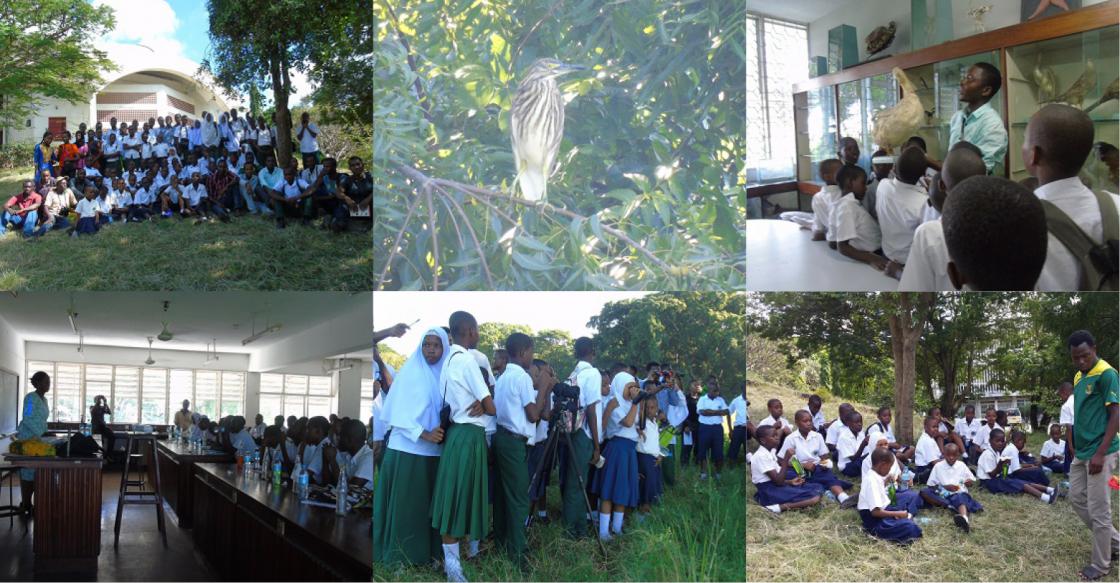You are here
Large Turnout and Media Presence at WMBD Event in Tanzania

The University of Dar es Salaam, in particular the Department of Zoology and Wildlife Conservation, jointly with the Bird Environment and Community (BECO) Foundation and the Ministry of Natural Resources and Tourism, organized the celebration of a major World Migratory Bird Day event in Tanzania, which took place in Dar es Salaam on Saturday, 14 May 2016. The event was supported by an AEWA 2016 WMBD grant made possible through a voluntary contribution from the German Environment Ministry (BMUB).
The celebration started with a birdwatching tour at the University of Dar es Salaam sewage treatment ponds led by a group of experienced birders. This area is one of the few semi-natural habitats located within the city limits of Dar es Salaam. Over 30 bird species were observed, including the Malagasy Pond Heron, an intra-Africa migrant which breeds in Madagascar and winters on the African mainland.

After the birdwatching activity, a tour of the museum hosted in the Department of Zoology and Wildlife Conservation was organized for primary school pupils while the other participants attended a workshop. It was held by Dr. Chacha Werema and Dr. Jasson John, senior lecturers of the University of Dar es Salaam Zoology Department, and the main themes were illegal bird trade and the threats to migratory birds. The experts also presented government initiatives to conserve migratory birds, including the establishment of four Ramsar Sites and Beach Management Units.
In her opening speech, the Head of the Zoology Department, Dr. Flola Magige, affirmed the importance of cooperation between public and private stakeholders in order to tackle illegal killing, taking and trade.
In Tanzania, according to the official data provided by BirdLife International, there are 1,052 species of birds of which 47 are globally threatened and 24 are endemic. There are also many important hotspots for migratory birds and the area where the event took place, Dar es Salaam coast, is one of the 77 Important Bird Areas identified by BirdLife International on Tanzanian territory.
The public event held in Dar es Salaam to mark WMBD, underlines the importance of awareness-raising in making people aware of the treats migratory birds face and to mobilize local support and understanding for conservation efforts underway to protect migratory birds in Tanzania and across the flyway.
More than 100 people of all ages participated in the various activities and the different events were covered by the media, including television and newspapers (The Guardian on Sunday, The Citizen).
--------------------------------------------------------------------------------------
This article was written by Nicole Spada during her internship at the Common Information Management, Communication and Outreach Team of the UNEP/CMS and UNEP/AEWA Secretariats.
